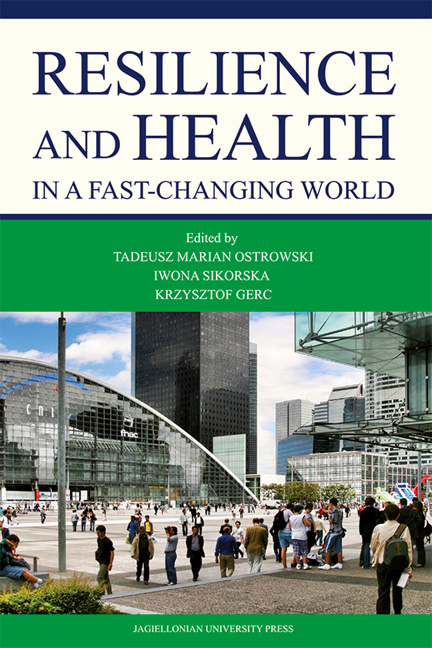Book contents
Resilience from a Variety of Theoretical Perspectives: an Introduction
Published online by Cambridge University Press: 12 January 2018
Summary
The fast-changing world creates a challenging environment because each change calls for an effort to adjust. The world has been changing since time immemorial. Our times, namely the 21st century, is unique in that it bears witness to change which both accelerates and expands to a variety of areas. Change has turned into a cultural norm. Social approval to change is on the rise, and we are now also more inclined to ignore change or respond to it with surprise. We live in a period of rapid change affecting civilisation, culture, science, technology and customs or traditions. Change progresses so fast in certain areas that it is difficult to keep up with its pace. Thus, each personal resource which allows individuals to experience change in a positive or constructive way proves to be both inspiring for scientists and important pragmatically. One of these resources is also resilience, a particular disposition which marks the ability to bounce back after a crisis or when faced with difficulty or a protracted and stressful situation. The ability to bounce back from the depths of depression, helplessness or loneliness and return to normal life is one of the descriptive definitions of resiliency understood as a personal disposition. In this sense, resiliency is one of the conceptual categories which belong in the realm of “psychology in spite of all,” which identifies processes and mechanisms that protect individuals against the negative effect of risk factors and help them live healthy and normal lives despite justified fears of impending destruction. This pertains to situations which involve strong pathogenic factors that are likely to cause a crisis, illness and developmental disorders; and which, as expected, usually cause widely related health problems in a large proportion of the subjects involved in psychological studies. That being said, researchers working with people with mental health problems come across individuals who are able to withstand destruction, e.g. Werner (1996), who, in her longitudinal study carried out in the Hawaii on infants exposed to reproductive and environmental risk factors, demonstrated that, after 40 years, the same infants developed into resilient, caring, competent and confident adults; or Antonovsky (1987, 1991), who identified resilient individuals in a group of the then elderly Nazi concentration camp survivors.
- Type
- Chapter
- Information
- Resilience and Health in a Fast-changing World , pp. 7 - 16Publisher: Jagiellonian University PressPrint publication year: 2015



